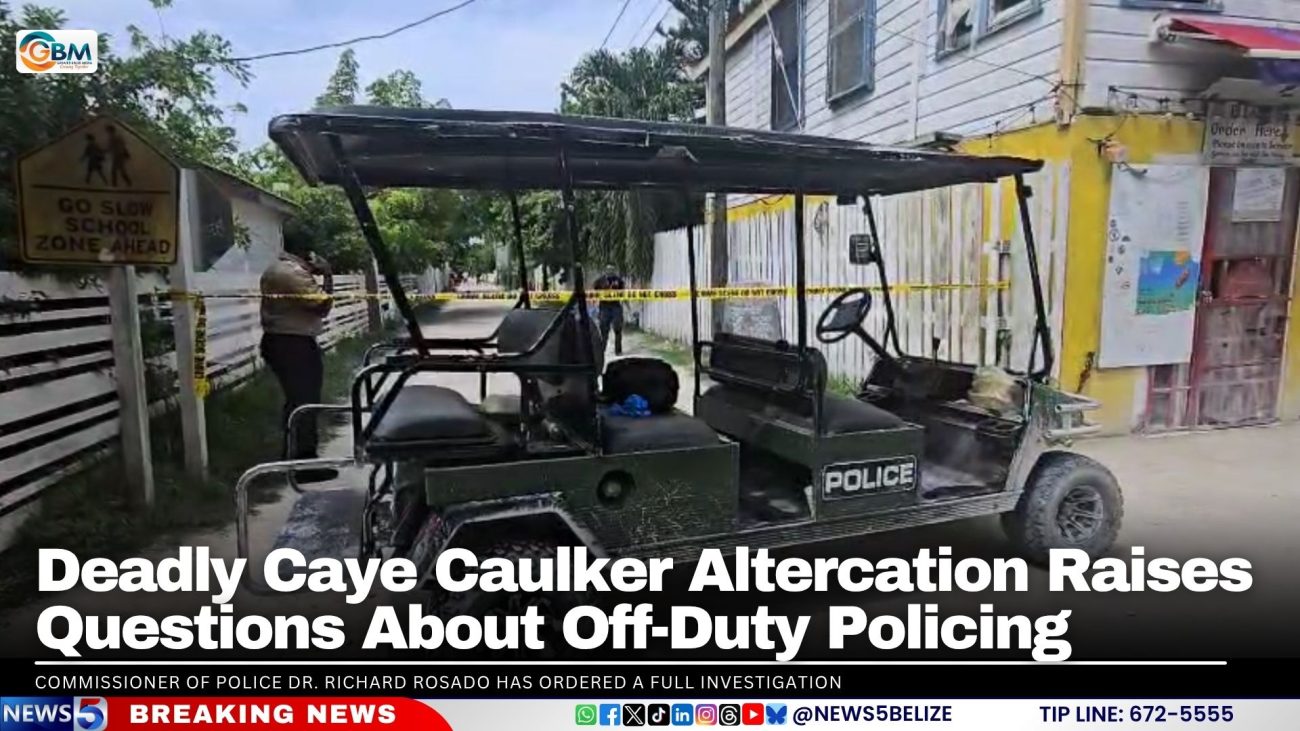Deadly Caye Caulker Altercation Raises Questions About Off-Duty Policing
Following the fatal stabbing of 18-year-old Kevin De Paz in Caye Caulker, a police officer has spoken out publicly to share his personal account of the dangers officers face when intervening in violent incidents while off duty.
The officer recounted a past experience in San Pedro Town. He described witnessing three men viciously attacking a woman near a hot dog stand around 2 a.m. Although off duty, he was still in uniform and chose to intervene.
“I got stabbed with a key. I hit two of them. The third one ran. They were charged and convicted,” the officer wrote. However, he added that what followed was a legal and emotional ordeal. “The bullies became the victims. The amount of reports I had to write, the lawsuit that followed… I was eventually cleared because luckily there was camera footage, but it definitely doesn’t worth it for me.”
Commissioner of Police Dr. Richard Rosado has ordered a full investigation into the incident in Caye Caulker.
According to Assistant Superintendent of Police Stacy Smith, the confrontation took place around 2:30 a.m. in front of a fast food stall. Two off-duty police officers witnessed a man pushing another and attempted to intervene. During the altercation, De Paz was fatally stabbed, and two other civilians were injured.
Police have not confirmed whether the officers involved were armed or whether they used any sharp objects in the confrontation.
The incident has sparked a growing conversation around whether police should get involved in situations while not officially on duty.
“You either get hurt and are left to deal with it on your own, or you intervene to defend someone, justifiably use force, and somehow still end up being painted as the aggressor,” the officer shared. “The system will hang you out to dry.”
A Facebook poll conducted by News 5 received over 1,100 votes. Sixty-eight percent of respondents said off-duty officers should step in when witnessing violence, calling it part of their duty to protect and serve. Nineteen percent believed intervention should only occur if lives are clearly at risk and safety is assured. Thirteen percent felt the legal and personal risks were too high for any involvement.






Facebook Comments